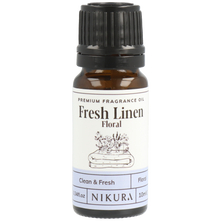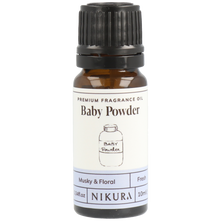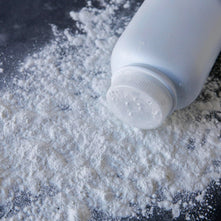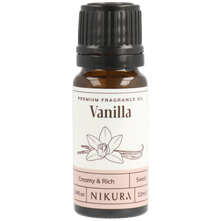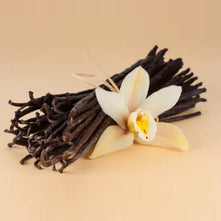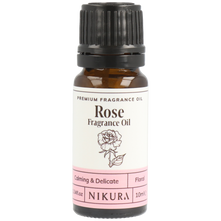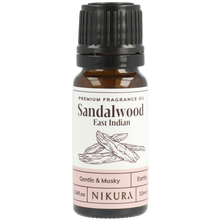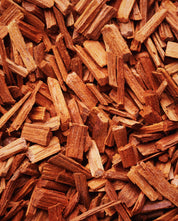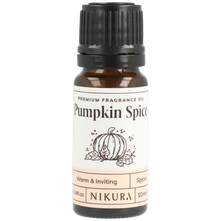- Home
- Fragrance Oils
Fragrance Oils

From classic florals and indulgent spices to vibrant fruits and nostalgic childhood favourites, our premium cruelty free fragrance oils for candles, soaps and diffusers are designed to capture your imagination.

Information
From classic florals and indulgent spices to vibrant fruits and nostalgic childhood favourites, our premium cruelty free fragrance oils for candles, soaps and diffusers are designed to capture your imagination.
Products


Black Opium Fragrance Oil


Daisy Fragrance Oil


Baccarat Rouge Fragrance Oil


Lost Cherry Fragrance Oil
Gift Sets
Spoilt for choice? Treat yourself or someone else to one of our carefully curated collections.
Shop Fragrance Oil Gift Sets.jpg?v=1635411112745&options=w_275,h_200)


Kreed Aventos Fragrance Oil


Apple & Cinnamon Fragrance Oil | Fine Fragrance


Hot Chocolate & Macaroon Fragrance Oil | Fine Fragrance


Baked Cinnamon Bun Fragrance Oil | Fine Fragrance


Frosted Berries Fragrance Oil | Fine Fragrance


Clementine & Cinnamon Fragrance Oil | Fine Fragrance


Rhubarb & Strawberry Fragrance Oil | Fine Fragrance


Guava & Watermelon Fragrance Oil | Fine Fragrance


Mediterranean Sunrise Fragrance Oil | Fine Fragrance


Crazy Chocolate & Orange Fragrance Oil | Fine Fragrance


Frosted Wonderland Fragrance Oil | Fine Fragrance


Tropical Sorbet Fragrance Oil | Fine Fragrance


Alsatian Gingerbread Fragrance Oil | Fine Fragrance


Frosty Christmas Rose Fragrance Oil | Fine Fragrance


Mistletoe & Snowflake Fragrance Oil | Fine Fragrance


Raspberry Mojito Fragrance Oil | Fine Fragrance


Soft Flowers & White Tea Fragrance Oil | Fine Fragrance


Aloe Vera & Coconut Water Fragrance Oil | Fine Fragrance
How to buy wholesale fragrance oils
Are you a small business? Do you love making soaps, candles, wax melts, and more for yourself and others? Check out our wholesale page to enquire about our bulk fragrance oil pricing.
Why Nikura?
All of our premium fragrance oils are vegan, cruelty-free, and bottled by hand in the UK. We also provide wholesale rates for businesses.
Our dupe fragrance oils
At Nikura, we take pride in offering a unique collection of designer fragrance oils that capture the essence of luxury perfumes without the designer price tag.
Explore our top picks from our collection, each with its own distinctive allure:
- Black Opium Fragrance Oil: Black Opium fragrance oil has a captivating blend of coffee, vanilla, and white flowers, perfect for adding a touch of mystery and energy to your creations.
- La Vie Est Belle Fragrance Oil :La Vie Est Belle fragrance oil combines iris, jasmine, orange blossom, and patchouli for a scent that celebrates beauty and happiness.
- Daisy Fragrance Oil: Daisy fragrance oil is a whimsical mix of wild berries, white violets, and sandalwood, creating a fresh and playful scent.
- Lost Cherry Fragrance Oil: Lost Cherry fragrance oil combines a luscious blend of cherry, almond, and Turkish rose, capturing the essence of sweet temptation.
- Kreed Aventos Fragrance Oil: Kreed Aventos fragrance oil is a bold scent for the adventurous man, with notes of blackcurrant, Italian bergamot, French apples, and royal pineapple.
Our dupe fragrance oils are crafted to bring the essence of luxury fragrances into your home, skincare, and crafts at an affordable price. Explore our collection to infuse your creations with scents that inspire and delight.

What are fragrance oils?
We hear a lot about fragrance oils in the crafting world, but what are fragrance oils?
These wonderful scented oils are created by perfumers to mimic a particular scent.
From fruity and fresh scents to baked goods, seasonal specialities, fruity fragrances and floral fantasies, the aromatic possibilities are endless. Many people tend to enjoy using fragrance oils for candle making, as well as creating soaps and wax melts.
What can fragrance oils be used for?
Much like our pure essential oils, our premium fragrance oils are versatile and can be used for many things:
- Aromatherapy: Fragrance oils are widely used in aromatherapy to create calming, invigorating, or mood-enhancing scents that can promote relaxation and reduce stress.
- Home Fragrance: They are commonly used to infuse homes with pleasant scents. Fragrance oils can be added to candles, diffusers, or potpourri to create a welcoming atmosphere.
- Personal Fragrance: Fragrance oils are essential ingredients in perfumes, colognes, and body sprays, allowing individuals to wear their preferred scents as a form of personal fragrance.
- Soap and Candle Making: Crafters use fragrance oils to add appealing scents to homemade soaps and candles, making these products not only functional but also aromatic.
- Cosmetics: Fragrance oils are incorporated into skincare and cosmetic products like lotions and creams to provide a pleasant scent while also enhancing the overall sensory experience of using these products.
Our Fine Fragrance range has been specially formulated for use in these sorts of projects and can produce a longer and stronger scent than other fragrance oils for candles.
Visit our blog to find recipes and guides on how to get the most out of your fragrance oils for candles, soap making, and more.
What's the difference between essential oils, fragrance oils and blends?
Essential oils are natural substances derived from plants, fruits, trees and herbs.
Fragrance oils, on the other hand, are created by perfumers to mimic a particular scent profile.
Learn more about the differences between fragrance oils and essential oils.
All of our essential oils are 100% pure and natural, and our homemade blends combine the essential oils to create bottles packed full of benefits for your wellbeing.
What are the benefits of using fragrance oils
Fragrance oils are a popular choice for those looking to enhance both their environment and their well-being without breaking the bank.
They offer several key benefits that make them a versatile and practical option for scenting spaces and crafting personalised products.
Here's a deeper look at the advantages of incorporating fragrance oils into your daily life:
- Cost-Effectiveness: Fragrance oils are highly concentrated, meaning a little goes a long way. Just a few drops can fill your space with a rich, lasting aroma. This makes them a more economical choice compared to other scenting methods. Whether you're adding them to homemade personal care products or using them in oil diffusers, you'll find that you can achieve potent effects without using large quantities.
- Extensive Variety: Our collection includes an expansive range of scents that surpass what is typically available with essential oils. From the sweet notes of vanilla and berry to the sophisticated scents of leather and sandalwood, fragrance oils allow you to explore a universe of aromas. This variety not only caters to personal preferences but also offers seasonal scents to enhance holiday atmospheres and thematic fragrances that evoke specific moods or memories.
- Versatility in Use: Fragrance oils are exceptionally versatile. They can be used across a wide array of applications, making them ideal for:
- Home Fragrance: Use in diffusers, oil burners, or as part of your vacuum cleaner dust to refresh and invigorate your living space.
- Personal Care Products: Incorporate into homemade soaps, bath bombs, and lotions for a personalised touch.
- Crafting Candles and Wax Melts: Perfect for candle making, fragrance oils mix well with wax to create beautifully scented candles that fill any room with your chosen aroma.
- DIY Projects: They are also great for making linen sprays, drawer sachets, and car fresheners.
- Long-Lasting Scent: Unlike other scent products that evaporate quickly, fragrance oils are designed to linger, ensuring your space remains fragrant for hours. This persistent quality makes them ideal for use in products that benefit from a sustained scent, like homemade air fresheners and potpourri.
- Safe and Easy to Use: When used as directed, fragrance oils are safe for a variety of applications. They provide a non-toxic way to enjoy your favourite scents, especially when sourced from reputable manufacturers who ensure their products are free from harmful additives.
- Emotional and Psychological Benefits: Scents have a profound effect on our emotions and mental state. Fragrance oils can be selected to help relax the mind, elevate mood, or invigorate the senses. This makes them an excellent choice for aromatherapeutic purposes, helping to create a calming atmosphere in any space.
By incorporating fragrance oils into your lifestyle, you not only enhance your environment but also enrich your well-being, making them a delightful and beneficial addition to any home. Explore our curated collection to find the perfect scent to suit your taste and enhance your living experience.

What are the best fragrance oils for candles?
The great thing about fragrance oils for candles is that they can accommodate many scent preferences and possibilities, however, some scented oils are considered more popular for use in candles.
- Vanilla: This classic, luxurious scent is a great base fragrance oil for candle-making due to its rich and versatile scent. Our vanilla fragrance oils come in many varieties including Vanilla Bean, and Vanilla Cream.
- Fresh Linen (Floral): Ideal for creating the timeless aroma of cleanliness, this premium fragrance oil combines delicate notes of baby powder and light musk with soft stains of lavender, jasmine, and tulip.
- Sandalwood: Gentle and musky, this scent is a great choice if you tend to like more natural fragrance oils for candles. This fragrance oil is also a great base for classic and calming candle-making, combining soft florals with fresh earthy notes.
All of these scented oils for candles are also perfect for making luxury soaps, and can function as wax melt fragrance oils too.
Discover the Cosy Embrace of Warm Fragrance Oils
As you delve into the world of fragrance oils, the category of warm scents offers an invitation into a soothing and comfortable olfactory experience.
Warm fragrance oils are crafted to wrap you in a blanket of cosiness, reminiscent of a crackling fireplace or a steaming mug of spiced cider. These aromas often become the heart of a home, fostering an atmosphere of relaxation and comfort.
The Essence of Warmth in Aroma
Warm fragrance oils are characterised by their rich and often spicy notes. Ingredients such as vanilla, amber, sandalwood, and musk are the cornerstone of these indulgent scents. They are the perfect accoutrements to chilly evenings and crisp autumn mornings, acting as a tangible sense of warmth against the cooler air.
Creating a Welcoming Ambiance
By incorporating warm fragrance oils into your space, you can transform the ambience of any room. These scents are particularly well-suited for common areas where family and friends gather, as they promote a feeling of togetherness and cheer. A few drops in a diffuser, and you'll soon find conversations flowing as effortlessly as the comforting aroma in the air.
Seasonal and Year-Round Comfort
While warm fragrance oils are often associated with fall and winter, their versatility allows them to be enjoyed year-round. In the cooler months, cinnamon can provide a festive touch, while exotic jasmine or sweet ylang-ylang bring warmth to the summer air. These scents work harmoniously to create a sanctuary that feels both inviting and tranquil, no matter the season.
Personalise Your Scent Experience
Warm fragrance oils offer a unique opportunity to personalise your scent experience. Blending different oils allows you to tailor the aroma to your preferences, creating a signature scent that is as unique as you are. Whether you're looking for a subtle background note or a more dominant fragrance, the power of warmth in these oils can be customised to suit your desires.
Embrace the Benefits
Aside from their pleasing bouquet, warm fragrance oils hold the potential for numerous mood-enhancing benefits. They are often thought to promote relaxation, reduce stress, and even stimulate a sense of happiness and well-being. By surrounding yourself with these comforting scents, you're not only treating your senses but nurturing your mind and soul.
Warm fragrance oils are much more than mere household fragrances; they are the essence of comfort, a nurturing touch for the soul that lingers in the air, making your house truly feel like a home.
Embrace the Essence of Spring with Fragrance Oils
Celebrate Renewal and Rejuvenation
Fresh blooms, gentle breezes, and verdant landscapes - these are the hallmarks of spring that captivate our senses. As the season of renewal unfolds, surrounding yourself with fragrance oils that embody the essence of spring can amplify the sense of rejuvenation and inspire a cheerful ambience in your space.
Spring's Signature Scents
Imagine the delicate scent of cherry blossoms wafting through the air, or the crisp aroma of freshly cut grass after a light rain. Spring fragrance oils offer a diverse palette of scents that mirror the season's natural symphony, crafting an atmosphere that is both uplifting and tranquil.
Invigorate Your Surroundings
By incorporating fragrance oils that feature notes of blooming lilacs, peonies, or hyacinths, you can bring the vivacity of spring's flora into your home. Energise your daily routine with the zesty and sparkling fragrances of citrus trees and wild berries. These scents serve as a daily reminder of the vitality and fresh beginnings that spring ushers in.
Blending the Perfect Springtime Atmosphere
Experiment with combining various spring fragrance oils to create a personalised scent that resonates with your mood and setting. Merge the herbaceous undertones of lavender with the sweetness of wild jasmine to create a bespoke ambience that enhances your living space and evokes the serene and hopeful spirit of the season.
How to use fragrance oils to make soaps
Another popular way to use our fragrance oils is in soap making. As with candles and wax melts, fragrance oils lend themselves very well to soaps due to their unique but powerful scents, as well as their easy formulas.
While soaps can be a little trickier to work with, we've broken down the steps into a handy beginner's guide to help get you started. Once you’re comfortable with the process check out article on the best fragrance oils for wax melts.

How to use fragrance oils
Scented oils can be used in a variety of ways, be it in a soap or candle recipe or as a bath salt or in a reed diffuser.
The most popular fragrances tend to create a feeling of calm or nostalgia, helping to ease feelings of anxiety or evoking special childhood memories.
Fragrance oils for diffusers tend to be the most popular choice for many people, as it allows them to enjoy the aroma for longer around their home.
You can also add a small amount of oil to your fresh laundry to create a whole new layer of fragrance to your clean clothes.
1. Fragrance Oils for Diffusers
Fragrance oils can be easily used with many diffusers, including reed diffusers, to fill your space with a pleasant aroma.
Typically, you'll add water to the diffuser up to the indicated line, then add a few drops of the fragrance oil.
Starting with 3-5 drops for each 100ml of water is a common guideline, adjusting to personal preference.
However, it's essential to ensure the fragrance oil is suitable for diffusers, as not all oils are appropriate for this use.
The exact process may vary, so always follow the specific instructions provided by the diffuser and fragrance oil manufacturers.
2. Fragrance Oils for Candle Making and Soap Making
Fragrance oils are a vital component in making candles and soaps, mainly for adding scent.
Generally, these oils are mixed into melted wax at a specific ratio, often expressed as a percentage of the wax's weight.
And when adding to your soap mixture, added at the “trace” point where the mixture is sufficiently thickened.
This blend is stirred for thorough distribution of the fragrance, then allowed to cool and solidify.
The precise steps and quantities may vary depending on the type of wax and fragrance oil used, and the desired scent strength.
Learn more about how to make candles with fragrance oils over on our blog.
3. Fragrance Oils for Wax Melts
Fragrance oils play a key role in creating scented wax melts.
Typically, these oils are added to the melted wax, in a proportion advised by the manufacturer, often between 6-10% of the wax's weight.
After the fragrance oil is added, the mixture is stirred gently to ensure an even distribution of the scent.
This scented wax is then allowed to cool slightly before it's poured into the wax melt moulds.
You can find even more uses for scented oils with our top ten ways to use fragrance oils article.

Understanding Carrier Oils in Fragrance Blending
When diving into the world of fragrance oils, one cannot overlook the importance of carrier oils.
These oils play a pivotal role as the base in which your favourite fragrances are diluted and stabilised, allowing you to safely apply them to your skin.
Unlike essential oils or fragrance oils, carrier oils are generally unscented or lightly scented, and they do not evaporate or impart their aroma as strongly. Let's explore the variety of carrier oils and their unique benefits.
Types of Carrier Oils
Each carrier oil offers a different combination of therapeutic properties and characteristics. The most commonly used oils include:
Jojoba Oil: Closely mimics the skin's natural oils, making it an excellent choice for facial care formulations.
Coconut Oil: Rich in fatty acids, it is a great moisturiser and provides a solid base for body butters and solid perfumes.
Sweet Almond Oil: Known for its lightweight and moisturising qualities, it is ideal for general skin care and massage oils.
Grapeseed Oil: A light oil that absorbs well into the skin, suitable for those with sensitive skin types.
Choosing the Right Carrier Oil
Selecting the appropriate carrier oil depends on the desired outcome of your fragrance blend. Consider the oil's viscosity, absorption rate, shelf life, and whether it has any potential allergens. Always choose a high-quality, pure carrier oil to ensure the integrity and performance of your final product.
Using Carrier Oils with Fragrance Oils
Mixing fragrance oils with carrier oils is a straightforward process. Begin by deciding on the concentration of the fragrance, which will determine the ratio of fragrance oil to carrier oil. A typical starting point might be a 1:10 ratio, where you have one part fragrance oil to ten parts carrier oil, but you can adjust this according to the strength of the aroma you desire.
Safe Application and Storage
With your blend ready, it's important to remember that although diluted, fragrance oils should still be patch-tested on your skin to check for any reactions. Store your scented carrier oil mixtures in a cool, dark place to protect their properties and extend their shelf life.
Carrier oils are not only vehicles for your scent creations but also provide nurturing benefits to the skin. By understanding these unsung heroes of fragrance making, you can craft personalised, skin-safe scents to enjoy and share.
Skin Compatibility with Fragrance Oils
Understanding Skin Sensitivity and Fragrance Oils
When selecting fragrance oils for personal use, it's crucial to consider skin sensitivity. Our skin can react differently to various compounds present in fragrance oils, leading to irritation or allergic reactions in sensitive individuals. Always opt for high-quality oils and consider conducting a patch test before using a new fragrance oil extensively.
Choosing the Right Fragrance Oil for Your Skin
Individual Skin Type: Each skin type responds uniquely to fragrance oils. Oily, dry, or combination skin types might interact with fragrance oils in varying ways. It's essential to understand your skin type and choose oils that are formulated to be gentle and skin-compatible.
Dilution is Key: Pure fragrance oils are highly concentrated and should not be applied directly to the skin. Diluting them with a carrier oil, such as jojoba or sweet almond oil, minimises the risk of irritation. The standard dilution recommendation is to maintain a ratio that respects skin sensitivity and the intensity of the fragrance.
The Importance of Allergy Testing
Before incorporating a new fragrance oil into your routine, it's advised to perform an allergy patch test. Apply a small diluted amount of the fragrance oil to a discrete area of your skin and wait for 24 to 48 hours. Any signs of redness, itching, or discomfort may indicate a sensitivity to the oil, suggesting that you should select an alternative product.
Quality Matters
Purchasing high-quality fragrance oils from reputable suppliers can significantly affect your skin's reaction. Oils that are synthetic or contain additives might increase the likelihood of an unfavourable skin response. Seek out pure, authentic, and possibly organic fragrance oils for the best skin compatibility.
Final Thoughts
Fragrance oils can be a delightful addition to your skincare routine when used responsibly. Be mindful of your skin's needs and reactions to ensure a safe and pleasurable experience with these aromatic treasures.
Frequently Asked Questions
Are Nikura's fragrances IFRA compliant?
At Nikura, we take great pride in ensuring that all of our fragrance oils adhere to the strict standards set by the International Fragrance Association (IFRA). Our commitment to safety and industry best practices is unwavering, and we consistently follow IFRA guidelines to determine the appropriate percentage of fragrance to use in various applications, such as candle making, diffusers, and soap.
How much fragrance do I add to 100g of wax?
The ideal fragrance load for candle wax generally falls between 6% and 10%.
Therefore, for 100g of wax, you would typically add between 6g to 10g of fragrance oil.
It's important to start with a lower amount and increase gradually, testing for desired scent strength.
Always follow the manufacturer's recommendations for both the wax and fragrance oil you're using to ensure optimal performance and safety.
You can find all of our fragrance oils right here at Nikura.
Learn more about how to measure fragrance oils for wax melts and candles.
How do you make scents for candles?
Finding strong fragrance oils for wax melts, soaps, and candles is easy with our collection of fine fragrances.
Ranging from sweet and comforting to refreshing and floral, these oils will help make your next scent project the best one yet.
How do you make good smelling candles?
Sometimes the best fragrance oils for wax melts, candles, and soaps are the ones you've never even considered - like Baked Cinnamon Roll or Cream Soda.
Other times, it's the classics like Apple & Cinnamon or Fresh Sea Air that keep your family members and clients coming back for more.
If you're unsure of the best way to scent your creations, our list of the best fragrance oils for candles can help set you on the right path.
Why don't my homemade candles smell?
There could be several reasons why your homemade candles aren't emitting a strong fragrance. Firstly, you might not be using enough fragrance oil; typically, 6-10% of the wax's weight is recommended.
Secondly, the quality of fragrance oil matters. Lower quality oils may not give off strong scents. Thirdly, the scent might not be dispersing properly if you're adding the fragrance oil when the wax is too hot or too cool.
Finally, the type of wax can also affect the scent. Some waxes, like soy wax, don't carry scent as well as paraffin wax. Always follow the manufacturer's instructions for the best results.
Explore our range of fragrance oil supplies and pick your favourite scent, add the correct percentage and enjoy an incredible homemade candle!
You can use our fragrance load guide to help you along the way.
What is the cleanest burning oil for candles?
Most scented oils will create a good, clean burn without the need for worry. The main thing to focus on if you want your candles to burn well is the type of candle wax.
Soy wax is a good choice for those wishing to use fragrance oils for candles.
Can you use any fragrance oil in soy candles?
Yes, most fragrance oils can be used in soy candles, but it's crucial to ensure they are specifically designed for candle making to ensure proper scent throw and safety.
However, not all fragrance oils will perform the same in soy wax as they might in other types of wax. Soy wax often requires more fragrance oil to achieve a strong scent throw.
Additionally, some scents may not be as potent in soy wax compared to paraffin wax.
Always adhere to the recommended fragrance load of your specific wax and test your candles to achieve the desired scent strength.
How do I use fragrance oils to make candles?
Fragrance oils are ideal for use in candles because they provide excellent scent throws, long-lasting aromas, and easy-to-work with formulas - particularly if you're a beginner to candle making.
If you're looking for an easy, beginner-friendly recipe on how to make candles, you can check out our candle-making guide.
How do I use fragrance oils to make wax melts?
If you're not quite ready to dive into the world of candles, using fragrance oils for wax melts is a simple alternative that can be just as lovely for your home.
Our fragrance oils will give these tiny wax creations a powerful and long-lasting smell, while still keeping the process easy and stress-free.
Learn more about how to make wax melts.
